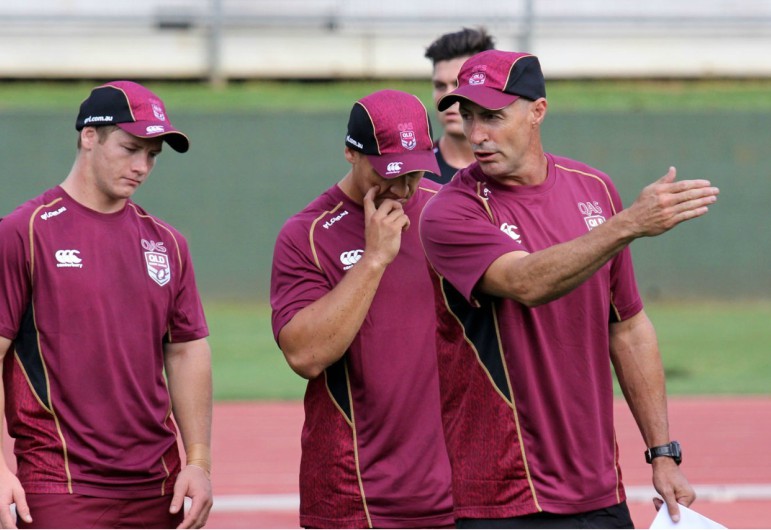In 2016, I coached the Queensland Under 20’s State of Origin team which included some very good young players that have progressed onto the NRL this year – Brodie Croft (Melbourne Storm), Lachlan Lewis (Canterbury Bulldogs) and Jaydn Su’A (Brisbane Broncos). One of the great experiences of coaching this team was being able to train against the Senior Queensland State of Origin team.
We had lunch with the Senior team first and then had an opposed training session which involved a warm-up, various drills then a semi-contact scrimmage (full field 13 v 13 game play). The Senior team was stacked full of legends like Johnathon Thurston, Cameron Smith, Cooper Cronk, Darius Boyd and Greg Inglis. But what struck me the most, was how excited they were to train and be around each other. It was obvious that they loved what they did. Passion fuels perseverance and resilience, something you need in spades to be a high performer in any discipline. This training session was nothing new, some of them would have done hundreds of sessions the same or very similar with their own club teams. But high performers don’t see it as mundane, tedious or dull, they get addicted to the process of getting better.

Kurt taking a training session for the Queensland Under 20s team
For these young Under 20’s players, it was great for them to see and hear up close, these Origin legends ritualise and prepare for a performance. It was priceless to experience their extreme level of communication in both attack and defence. It got me thinking – you can’t really ‘over talk’. Talking brings clarity, so everyone knows what is expected and no assumptions are made. It’s the same in the workplace – lack of clarity and poor communication is often a real problem.
High Performing leaders provide clarity on what is expected, and they do this through modelling the right behaviour. The also reward this behaviour when they see others doing it and challenge it without delay when they see something that is not quite right. The most important thing to do is model the right behaviour as it is very hard to challenge someone else when you are not living the expectations. It’s all about what you do, not what you say. As an NRL coach and now in my job as a Facilitator with Leading Teams, I have observed many different leaders. Some who attempted to lead by command and control or by virtue of their position or status. Others, who lead by influence, empowering their teams and bringing their people along with them. The former leaders often judge themselves by their intentions and others by their actions. The later, model the right behaviour and attitude, and seek to engage their staff / team to create more buy-in.
Back to the Origin training session. After the session was completed, the Under 20’s boys were in the shade taking off their boots and strapping, preparing to get on the bus. I was doing the same, getting my gear ready to leave when I look back out on the field and what I saw struck me. Three players were still out there practising their skills on their own – mostly kicking and catching. I caught the attention of all the Under 20’s squad and said, ‘Look out on the field boys, what do you notice?’ They didn’t even have to answer. Some of them just smiled and nodded as if to say, ‘I get it now’. The three players were Cameron Smith, Johnathan Thurston and Cooper Cronk. As we boarded the bus and drove off, they were still out there practising.
I checked in with one of the younger players and asked, ‘Did you enjoy that?’. His response was, ‘No wonder they are so good’.
I love the quote from Ralph Waldo Emerson ‘Your actions speak so loudly, I cannot hear what you say’. So yes, Leaders do set the tone through their actions.
Kurt joined Leading Teams in October 2017, coming to us from a career playing and coaching in the NRL. Kurt is a Facilitator based in Sydney.
Learn more about Kurt.



